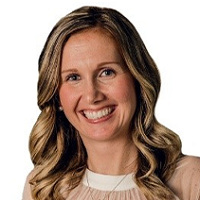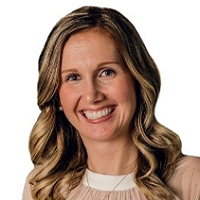Are Your Savings Just Going to Taxes?
Don't give away more than you have to. Put tax-efficient investing strategies to work.


Profit and prosper with the best of Kiplinger's advice on investing, taxes, retirement, personal finance and much more. Delivered daily. Enter your email in the box and click Sign Me Up.
You are now subscribed
Your newsletter sign-up was successful
Want to add more newsletters?

Delivered daily
Kiplinger Today
Profit and prosper with the best of Kiplinger's advice on investing, taxes, retirement, personal finance and much more delivered daily. Smart money moves start here.

Sent five days a week
Kiplinger A Step Ahead
Get practical help to make better financial decisions in your everyday life, from spending to savings on top deals.

Delivered daily
Kiplinger Closing Bell
Get today's biggest financial and investing headlines delivered to your inbox every day the U.S. stock market is open.

Sent twice a week
Kiplinger Adviser Intel
Financial pros across the country share best practices and fresh tactics to preserve and grow your wealth.

Delivered weekly
Kiplinger Tax Tips
Trim your federal and state tax bills with practical tax-planning and tax-cutting strategies.

Sent twice a week
Kiplinger Retirement Tips
Your twice-a-week guide to planning and enjoying a financially secure and richly rewarding retirement

Sent bimonthly.
Kiplinger Adviser Angle
Insights for advisers, wealth managers and other financial professionals.

Sent twice a week
Kiplinger Investing Weekly
Your twice-a-week roundup of promising stocks, funds, companies and industries you should consider, ones you should avoid, and why.

Sent weekly for six weeks
Kiplinger Invest for Retirement
Your step-by-step six-part series on how to invest for retirement, from devising a successful strategy to exactly which investments to choose.
There’s a quote from an old Morgan Stanley ad that gets passed around a lot at tax time: “You must pay taxes, but there’s no law that says you gotta leave a tip.”
Savers, especially, should pay heed to this advice.
Taxes already take a chunk of your earnings — the more you make, the more you pay (in most cases). But that burden can be even heavier for those who save and invest.
From just $107.88 $24.99 for Kiplinger Personal Finance
Become a smarter, better informed investor. Subscribe from just $107.88 $24.99, plus get up to 4 Special Issues

Sign up for Kiplinger’s Free Newsletters
Profit and prosper with the best of expert advice on investing, taxes, retirement, personal finance and more - straight to your e-mail.
Profit and prosper with the best of expert advice - straight to your e-mail.
For example, if you have investments such as mutual funds that aren’t in an IRA/Roth IRA and are generating annual income, that money, in most situations, is 100% taxable. If you didn’t know that, and were surprised when a 1099-DIV showed up in the mail, you may have some re-evaluating to do.
How much of a difference can a tax-efficient portfolio make?
Let’s say there’s a 20-year-old with $100 received from a mutual fund dividend, and he pays 30% (25% federal and 5% state) in taxes. He’s left with just $70.
Next, let’s look at his twin brother’s account. He has assets in the same amount, but it’s been structured in a way so that 50% isn’t taxable. He’s paying $15 in taxes — 30% of $50 — and ends up keeping $85 instead of $70.
For a younger person, that tax savings is important because of the compounding interest; if you’re keeping more, you’re likely investing more, and you’re probably earning more.
Even if these brothers got the exact same rate of return on the exact same dollar amount, the one with the tax-efficient portfolio is going to likely end up with more money in retirement.
Now, let’s go bigger — and older.
Recently, we had a woman come in with a $1.5 million portfolio — all stocks, bonds and mutual funds, no municipal bonds or any tax-advantaged vehicles. All of the money was non-qualified (or non-retirement), and therefore all of the income being created was taxable. Her adviser told her that when she reaches retirement, her portfolio will provide $40,000 in income each year.
But that isn’t a complete picture. I ran the numbers and showed her: With that $40,000 in income, and paying 30% in taxes ($12,000), she’ll really be living on only $28,000.
If she had a 50% tax-efficient portfolio, she’d keep $34,000 instead of that $28,000. Which one would you rather be living on?
Unfortunately, this seems to be the message a majority of the population doesn’t hear. Instead, much of their focus goes to rate of return or that big number at the bottom of those quarterly statements.
But even if the rate of return on your mutual fund is 7% or more, you’re not getting all of that. That’s not the net. And if that big dollar amount is bumping you into a higher tax bracket, you’re not keeping as much as you could.
In the end, it isn’t about how much you make, it’s about how much you keep.
Your financial adviser can help you find tax-wise ways to help shield your assets and still use income-producing assets such as municipal bonds, interval funds, alternative investments, IRAs, real estate and other strategies. Get an analysis of your portfolio to help ensure the money you’ve put away to build a better future doesn’t end up costing you at tax time.
Kim Franke-Folstad contributed to this article.
The article and opinions in this publication are for general information only and are not intended to provide specific advice or recommendations for any individual. Please consult with your tax and/or legal adviser for such guidance.
Examples are for illustrative purposes only and may not be indicative of your situation. Your results will vary.
Securities offered only by duly registered individuals through Madison Avenue Securities, LLC (MAS), Member FINRA & SIPC. Advisory services offered only by duly registered individuals through Brighter Financial Capital Management, LLC, a SEC Investment Advisor. Insurance products and services are offered through Clark & Associates, Inc. Financial Solutions, an affiliated company. Brighter Financial Capital Management, LLC and MAS are separate entities, independently owned.
The appearances in Kiplinger were obtained through a PR program. The columnist received assistance from a public relations firm in preparing this piece for submission to Kiplinger.com. Kiplinger was not compensated in any way.
Related Content
Profit and prosper with the best of Kiplinger's advice on investing, taxes, retirement, personal finance and much more. Delivered daily. Enter your email in the box and click Sign Me Up.

Megan Clark is CEO and executive wealth manager at Clark & Associates Inc. Financial Solutions and is an Investment Adviser Representative, an insurance professional and a Retirement Income Certified Professional®. As a financial adviser, she is passionate about helping families create a holistic financial plan, and she often holds "For Women by Women" informational seminars to reach out to and assist women in pursuing their goals. Clark has been recognized for several achievements, including Forbes Best-In-State Next-Gen Wealth Advisors 2019 and America's Top Women Advisors 2020.
-
 Ask the Tax Editor: Federal Income Tax Deductions
Ask the Tax Editor: Federal Income Tax DeductionsAsk the Editor In this week's Ask the Editor Q&A, Joy Taylor answers questions on federal income tax deductions
-
 States With No-Fault Car Insurance Laws (and How No-Fault Car Insurance Works)
States With No-Fault Car Insurance Laws (and How No-Fault Car Insurance Works)A breakdown of the confusing rules around no-fault car insurance in every state where it exists.
-
 7 Frugal Habits to Keep Even When You're Rich
7 Frugal Habits to Keep Even When You're RichSome frugal habits are worth it, no matter what tax bracket you're in.
-
 For the 2% Club, the Guardrails Approach and the 4% Rule Do Not Work: Here's What Works Instead
For the 2% Club, the Guardrails Approach and the 4% Rule Do Not Work: Here's What Works InsteadFor retirees with a pension, traditional withdrawal rules could be too restrictive. You need a tailored income plan that is much more flexible and realistic.
-
 Retiring Next Year? Now Is the Time to Start Designing What Your Retirement Will Look Like
Retiring Next Year? Now Is the Time to Start Designing What Your Retirement Will Look LikeThis is when you should be shifting your focus from growing your portfolio to designing an income and tax strategy that aligns your resources with your purpose.
-
 I'm a Financial Planner: This Layered Approach for Your Retirement Money Can Help Lower Your Stress
I'm a Financial Planner: This Layered Approach for Your Retirement Money Can Help Lower Your StressTo be confident about retirement, consider building a safety net by dividing assets into distinct layers and establishing a regular review process. Here's how.
-
 The 4 Estate Planning Documents Every High-Net-Worth Family Needs (Not Just a Will)
The 4 Estate Planning Documents Every High-Net-Worth Family Needs (Not Just a Will)The key to successful estate planning for HNW families isn't just drafting these four documents, but ensuring they're current and immediately accessible.
-
 Love and Legacy: What Couples Rarely Talk About (But Should)
Love and Legacy: What Couples Rarely Talk About (But Should)Couples who talk openly about finances, including estate planning, are more likely to head into retirement joyfully. How can you get the conversation going?
-
 How to Get the Fair Value for Your Shares When You Are in the Minority Vote on a Sale of Substantially All Corporate Assets
How to Get the Fair Value for Your Shares When You Are in the Minority Vote on a Sale of Substantially All Corporate AssetsWhen a sale of substantially all corporate assets is approved by majority vote, shareholders on the losing side of the vote should understand their rights.
-
 How to Add a Pet Trust to Your Estate Plan: Don't Leave Your Best Friend to Chance
How to Add a Pet Trust to Your Estate Plan: Don't Leave Your Best Friend to ChanceAdding a pet trust to your estate plan can ensure your pets are properly looked after when you're no longer able to care for them. This is how to go about it.
-
 Want to Avoid Leaving Chaos in Your Wake? Don't Leave Behind an Outdated Estate Plan
Want to Avoid Leaving Chaos in Your Wake? Don't Leave Behind an Outdated Estate PlanAn outdated or incomplete estate plan could cause confusion for those handling your affairs at a difficult time. This guide highlights what to update and when.